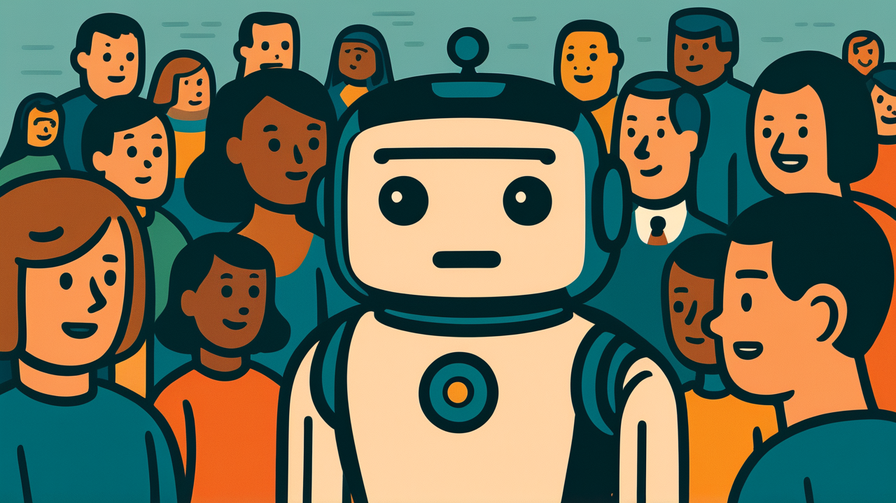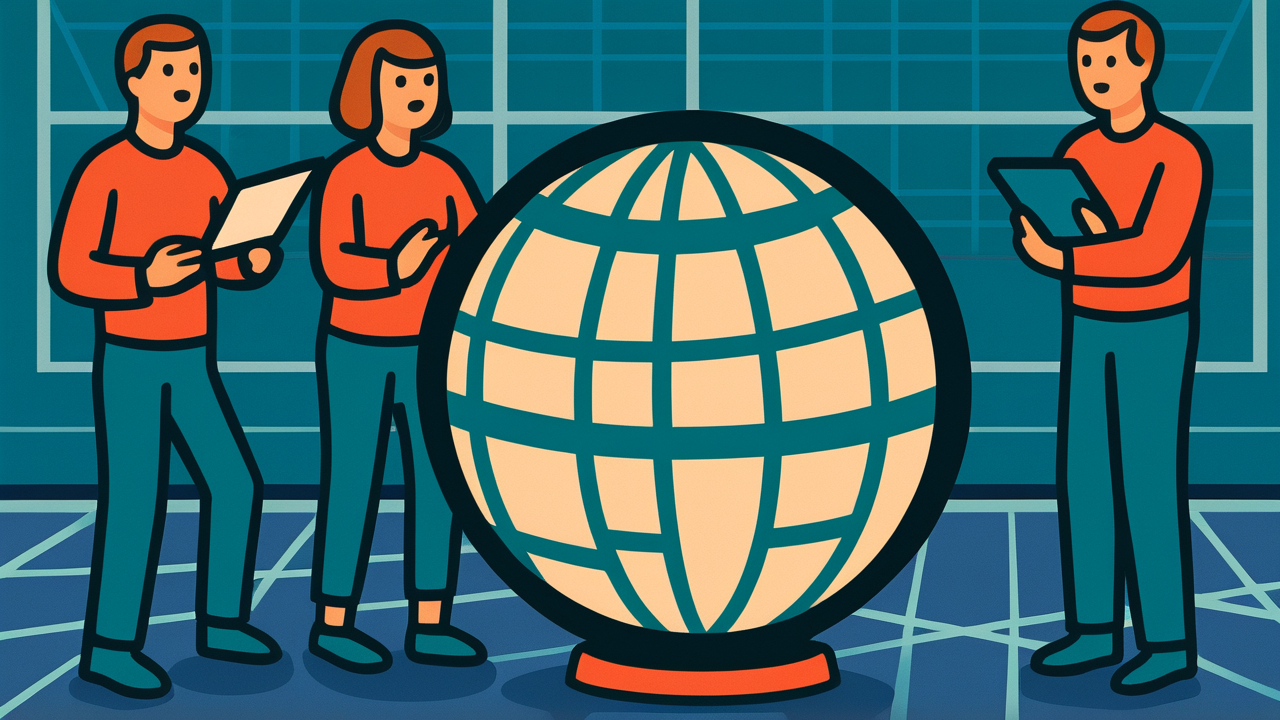[Disclaimer] This article is reconstructed based on information from external sources. Please verify the original source before referring to this content.
News Summary
The following content was published online. A translated summary is presented below. See the source for details.
Salesforce explains why AI systems need more than just raw data to be trustworthy—they need comprehensive “enterprise knowledge.” This knowledge includes all the unstructured information within a company: documents, emails, customer interactions, internal guides, and team expertise. Surprisingly, over 80% of all enterprise data consists of this often-untapped information. For AI agents (systems that can make decisions and take actions autonomously) to work reliably, they need access to this complete knowledge base. Without it, AI might make superficial or incorrect decisions that undermine trust. Enterprise knowledge is crucial for four reasons: fueling confident decision-making by providing rich context, ensuring contextual accuracy and personalization, driving ethical innovation while maintaining efficiency, and upholding compliance in regulated industries. Salesforce’s Data Cloud addresses the challenge of fragmented knowledge by creating a unified platform that connects data from all sources—CRM, marketing, sales, and service. This ensures AI agents operate with complete, up-to-date information while maintaining proper governance and security. Companies like Precina use this approach to deliver personalized healthcare while maintaining compliance, demonstrating how organizing enterprise knowledge transforms AI from merely smart to genuinely trustworthy.
Source: Salesforce News
Our Commentary
Background and Context

You know how sometimes you ask an AI chatbot a question and it gives you an answer that sounds smart but is completely wrong? Or when a virtual assistant misunderstands what you need because it doesn’t know enough about you? This happens because most AI systems only see part of the picture—like trying to understand a movie by watching random scenes out of order.
Companies are discovering that to make AI truly helpful and trustworthy, it needs access to ALL their knowledge—not just the organized databases, but the messy, real-world information hidden in emails, documents, and people’s heads. This hidden knowledge makes up a shocking 80% of what companies know!
Expert Analysis
Let’s break down what “enterprise knowledge” really means with a school analogy:
Structured Data (20%): This is like your school’s official records—student names, grades, attendance. It’s organized and easy for computers to read.
Unstructured Knowledge (80%): This is everything else—teacher’s notes about which students work well together, emails about upcoming events, that document explaining why the gym is closed on Tuesdays, even the janitor’s knowledge about which classroom doors stick. This messy, human knowledge is actually MORE important for making good decisions!
Here’s why AI needs both types:
• Context Matters: An AI scheduling a meeting needs to know not just when people are free, but also that Bob hates morning meetings and Sarah is in a different time zone.
• Avoiding Embarrassments: Without complete knowledge, AI might schedule a big presentation during the company picnic or recommend a product that was discontinued last month.
• Building Trust: When AI understands the full picture, its suggestions make sense and people trust it more.
Additional Data and Fact Reinforcement
The four pillars of trustworthy AI through enterprise knowledge:
1. Confident Decision-Making: AI with complete knowledge can reason through problems like a seasoned employee
2. Personalization: Understanding context allows AI to give you exactly what you need, when you need it
3. Ethical Innovation: AI can find new solutions while respecting company values and ethics
4. Compliance: In healthcare or finance, AI must follow strict rules—complete knowledge ensures it stays within bounds
Real example: Precina uses this approach for diabetes care. Their AI doesn’t just see medical records—it understands treatment histories, insurance requirements, and individual patient needs, creating personalized care plans that are both effective and compliant with regulations.
Related News
This push for comprehensive AI knowledge connects to the broader trend of “AI agents”—systems that don’t just answer questions but take actions. As companies deploy these agents for customer service, sales, and operations, the stakes get higher. A chatbot giving wrong information is annoying; an AI agent making wrong decisions could lose customers or violate regulations.
Major tech companies are racing to solve this problem. Microsoft’s Copilot aims to understand all your work context, Google’s Gemini wants to connect all your digital life, and now Salesforce’s approach focuses on unifying enterprise knowledge. The winner will be whoever can best organize and utilize that hidden 80% of knowledge.
Summary

Making AI trustworthy isn’t just about better algorithms—it’s about giving AI access to the complete picture, including the 80% of company knowledge hidden in documents, emails, and human expertise. By unifying all this information, companies can build AI systems that make smart decisions, understand context, and maintain trust.
For students thinking about careers in technology or business, this highlights an important lesson: the messiest, most human parts of organizations—the stuff that doesn’t fit in spreadsheets—is often the most valuable. Whether you’re interested in AI development, business analysis, or information management, understanding how to capture and organize human knowledge will be a crucial skill. The future belongs to those who can bridge the gap between human understanding and artificial intelligence.
Public Reaction
Business leaders are recognizing that their “messy” data is actually valuable, with many launching projects to organize institutional knowledge. IT professionals face the challenge of connecting disparate systems while maintaining security. Employees worry about AI having access to all their emails and documents, raising privacy concerns. Compliance officers appreciate the focus on governance but stress the complexity of implementation. Students and young professionals see opportunities in the emerging field of “knowledge engineering”—organizing human knowledge for AI consumption.
Frequently Asked Questions
Q: Is it safe to give AI access to all company information?
A: That’s why governance is crucial. Systems like Salesforce Data Cloud include security features to control what AI can access and ensure sensitive information stays protected.
Q: What’s the difference between data and knowledge?
A: Data is raw facts (like “Meeting at 3 PM”). Knowledge includes context and understanding (like “This is our most important client meeting, everyone should dress formally”).
Q: How can students prepare for careers in this field?
A: Learn both technical skills (data science, AI) and soft skills (understanding how organizations work, communication). The future needs people who can translate between human knowledge and AI systems.


